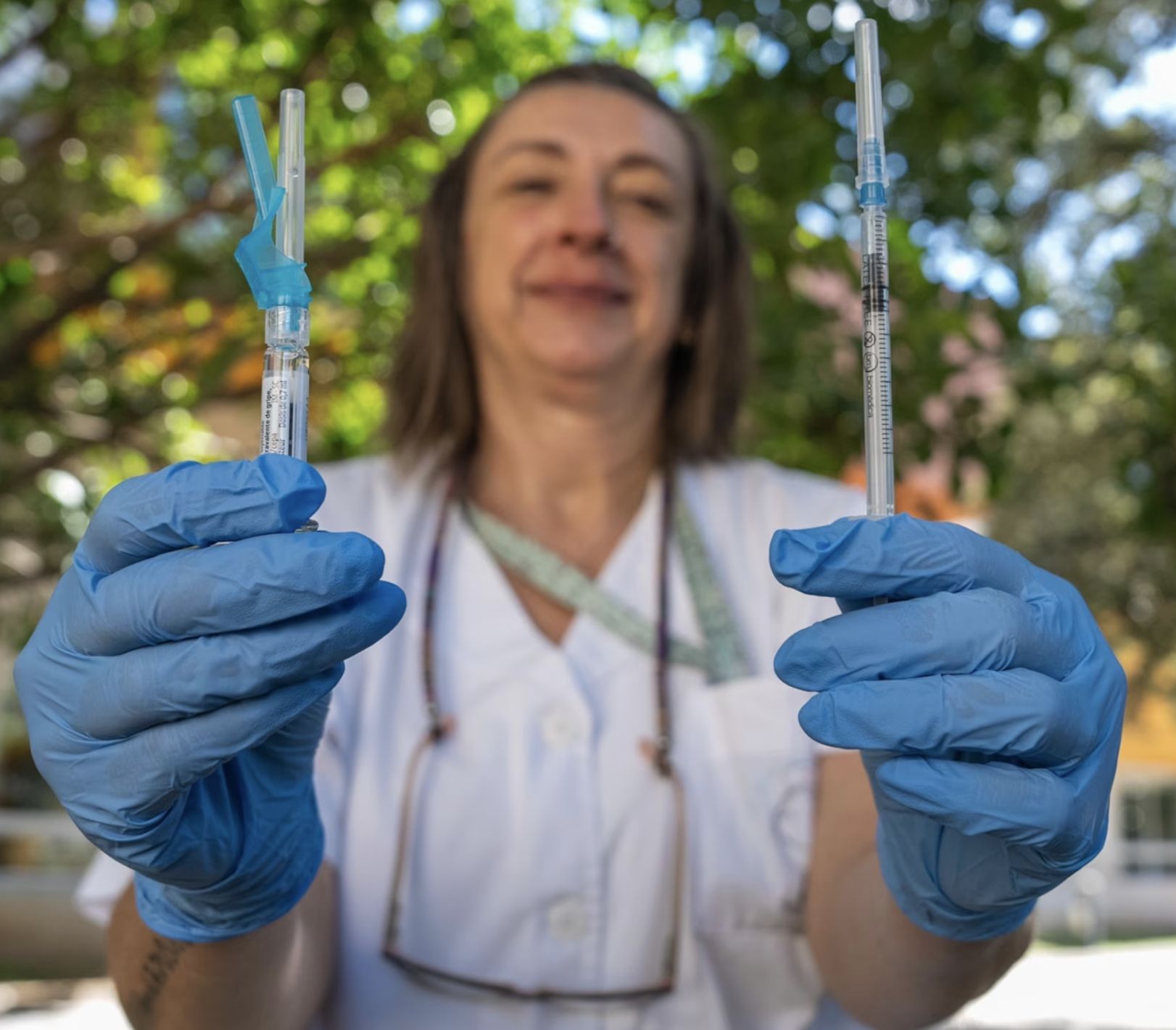The latest vaccine formula is available in local pharmacies now. Experts say it will be like the annual flu shot: one and done. Here’s why.
Unlike earlier in the pandemic, when the initial vaccines were followed by a seemingly never-ending stream of boosters, the recently updated COVID vaccine is simple: a single shot.
Developed by Pfizer-BioNTech and Moderna and approved on September 11 by the U.S. Food and Drug Administration (FDA), the new COVID vaccines have arrived just as the latest strain of the virus is causing a spike in hospitalizations and death rates. Last week, for instance, COVID-19 deaths in the United States rose by 8 percent from the previous week, and the number of hospitalizations hit 19,079—up by nearly 4,000 from the same week the month before.
The primary reason for the rise “is because immunity is waning for many people,” says William Schaffner, an infectious disease specialist at Vanderbilt University School of Medicine. Waning immunity occurs when protective antibodies and cellular defenses that were first stimulated by vaccine or infection diminish over time. In the case of COVID-19, it takes an average of about seven months for such waning to occur from one’s last COVID infection and about nine months following one’s last COVID vaccine.
It’s why the U.S. Centers for Disease Control and Prevention (CDC) encourages people to stay up to date on their COVID vaccines.
Schaffner explains that these updated vaccines are like the annual flu shot in that we are getting closer to needing only one COVID jab a year—rendering the term “booster” obsolete. “For more than 40 years, flu shots have been updated annually to protect against new strains of influenza and we’re now updating our COVID vaccines the same way.”
Vaccination versus infection
Although some still believe getting infected with the virus confers greater immunity than a COVID shot, the data continues to suggest otherwise. Though research does show that so called “natural immunity” that occurs after a previous COVID infection is as protective as getting vaccinated against the virus, it is much riskier and dangerous.
“We have ample data going back three years now showing that gaining immunity through vaccination is far safer than getting it by infection,” explains John Moore, a microbiologist and immunologist at Weill Cornell Medicine.
Schaffner points out that those who are nervous about getting the vaccine should consider that more than 600 million doses of the COVID shots have been safely administered in the U.S. (more than 12 billion globally), while the risk of hospitalization or death from a COVID infection remains. What’s more, emerging research has shown that multiple COVID infections can lead to chronic health issues such as diabetes, kidney disease, organ failure, and even mental health problems. Long COVID symptoms are also troubling and include brain fog, fatigue, chest pain, dizziness, and diminished taste or smell.
The CDC says that vaccination remains one’s best chance of reducing the risk of long COVID symptoms, chronic conditions, and hospitalization or death—a point echoed by research scientists.
“Even if someone doesn’t end up suffering hospitalization or chronic conditions as a result of a COVID infection,” Moore says, “at the very least the disease will make their life quite unpleasant for a week or longer as they deal with many disruptive symptoms. Isn’t that alone worse than a potential sore arm and a one-day headache that some experience after getting the vaccine?”
